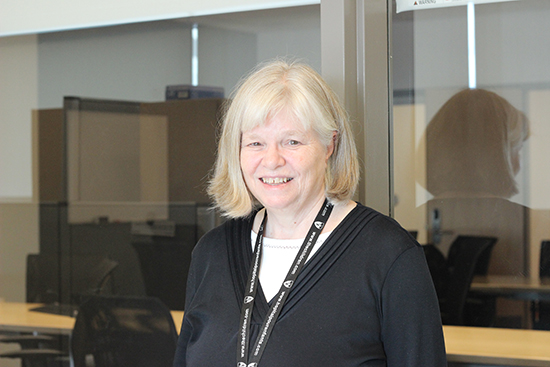Volunteering at the Research Ethics Board: a rewarding commitment
“Over the last 15 years, I’ve read every single research protocol and every single consent form before the board meetings,” says Dr. Jane McDonald, who, until recently, was chair of the pediatric Research Ethics Board (REB), which, like other REBs reviews and approves all research involving human participants at the MUHC. The REB meets once a month, but before each meeting, participants must have read hundreds of pages of protocols and informed consents. Many times, a protocol will go back and forth between the REB and investigators until they get everything just right.
“It has to make scientific sense. If it doesn’t have good science, it doesn’t have good ethics, declares Dr. McDonald, who is chief of the Division of Infectious Diseases at the Montreal Children’s Hospital and associate director of the MUHC Microbiology laboratory.

Raising important questions
Each committee comprises volunteers with varied backgrounds: ethicists, clinicians, healthcare professionals, research coordinators, lawyers, philosophers and members from the general public, who raise important questions about the studies and the consent forms.
“Everyone brings their unique perspective,” says Dr. McDonald. “That increases the scientific integrity of protocols and ensures patients’ safety and wellbeing. We want to facilitate great clinical research while making sure it’s within an ethical framework, and I feel that over the years our committee has dealt with that balance extremely well.”
Dr. McDonald, who sees her commitment as a rewarding learning experience, invites others to take the challenge and join one of the MUHC REBs.
“We keep up to date with the breath of clinical research going on at the MCH and learn a great deal about how to write sound protocols and balanced consent forms, but we never forget our protective role: we have the interests of the child at heart.”
Let’s talk about health ethics
As a patient, have you ever wondered whether or not you should participate in a research study? As a parent, have you had to decide whether participating in research would be right for your child? As a healthcare professional, have you thought about what participants have to say about research?
“Health ethics issues affect everyone: patients, families, communities, and healthcare providers,” says Veronique Fraser, ethics advisor for the Centre for Applied Ethics at the MUHC and organizer of National Health Ethics Week. “National Health Ethics Week, which takes place April 3 to 7, is a time for health and educational institutions, ethics committees, health care professionals, researchers, community organizations, businesses and members of the general public to explore and discuss those issues”.
During the week, the centre invites all members of the MUHC community to the following events:
- “What Patients and Subjects Say about Research Participation”
What’s it like to be a research participant? Rebecca Dresser is an expert in biomedical ethics who was diagnosed with cancer. She will tell us how she made the difficult decision not to participate in a cancer research trial.
Her talk will take place on Monday April 3, 2017, 4.15 – 5.15 p.m., room DS1.1427, MUHC Glen Site. Open to the public, come early! Space is limited.
- “Ethics considerations in Phase I clinical trials”
Jonathan Kimmelman, associate professor at the Biomedical Ethics Unit/Social Studies of Medicine at McGill University and an expert on the ethics of first-in-human research, will address key ethical considerations that should be examined in phase I clinical trials.
Tuesday April 18, 2017, 12 pm – 1 pm, RI auditorium, MUHC Glen Site
For more information, write to [email protected] or call 514-934-1934 x-34323.